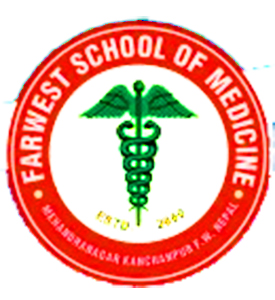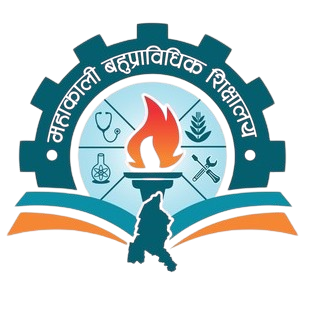Overview
Diploma in Pharmacy at Suklaphanta Polytechnic Institute
The Diploma in Pharmacy offered by Suklaphanta Polytechnic Institute (SPI) is a three-year academic program affiliated with the Council for Technical Education and Vocational Training (CTEVT), Nepal. Located in Shuklaphanta Municipality–11, Jhalari, Kanchanpur District, the institute serves as a technical learning center for aspiring pharmacy professionals in Sudurpashchim Province. The program is designed for SEE-passed students who aim to develop practical skills and core knowledge in pharmaceutical sciences. Admission is competitive and based on the entrance examination conducted by CTEVT.
With 40 regular seats, including four scholarship allocations, the course focuses on preparing students for essential roles in healthcare services, pharmaceutical industries, and retail drug distribution. The curriculum is implemented according to CTEVT's national academic guidelines, ensuring that students receive a standardized education applicable across Nepal.
Curriculum Details
The course spans six semesters, focusing on both theoretical and practical aspects of pharmacy. Subjects taught include:
-
Pharmaceutical Chemistry
-
Human Anatomy and Physiology
-
Pharmacology and Toxicology
-
Pharmaceutics
-
Pharmacognosy
-
Hospital and Clinical Pharmacy
-
Community Pharmacy
-
Pharmaceutical Jurisprudence
-
Health Education and First Aid
-
Practical Internship (Final Semester)
Each semester, laboratory work, academic assessments, and internal evaluations ensure students gain a balanced foundation in pharmaceutical sciences and healthcare responsibilities.
Objectives
The primary goal of this diploma course is to produce mid-level pharmacy professionals who can competently assist pharmacists, doctors, and health institutions in distributing, preparing, and managing medications. Specific objectives include:
-
Building foundational knowledge of drugs and their clinical uses
-
Developing ethical practices related to drug handling and patient interaction
-
Introducing students to public health responsibilities in medication dispensing
-
Encouraging skill-based learning aligned with national and local health needs
Scope
Graduates of the Diploma in Pharmacy are eligible to register with the Nepal Pharmacy Council (NPC) and work in various sectors such as:
-
Community pharmacies
-
Hospitals and clinics
-
Drug retail and wholesale outlets
-
Pharmaceutical manufacturing industries
-
Health posts and primary care units
The diploma also aids further academic progression in Bachelor-level pharmacy or related health science programs.
Learning Outcomes
Upon completion, students will be able to:
-
Understand the principles of drug action and formulation
-
Assist in preparing and dispensing medications accurately
-
Maintain patient records and drug inventory systems
-
Provide counseling on drug use and possible side effects
-
Apply first-aid knowledge and support primary healthcare needs
Skill Development Modules
Practical sessions and lab-based training focus on:
-
Drug compounding and preparation techniques
-
Medication labeling and documentation
-
Safe storage and disposal of pharmaceuticals
-
Communication skills for patient interaction
-
Emergency response training in clinical settings
Teaching Methodology
SPI applies a practice-centered approach with classroom instruction, lab demonstrations, case-based learning, and field assignments. Faculty members emphasize regular interaction, performance tracking, and hands-on exposure to improve confidence and job-readiness.
Admission Requirements
To apply, candidates must:
-
Pass the Secondary Education Examination (SEE)
-
Achieve at least a grade ‘C’ in Compulsory Science and ‘D+’ in English
-
Pass the CTEVT entrance exam conducted annually
Shortlisted applicants will be selected based on entrance scores and seat availability.
Career Opportunities
Graduates can explore employment in:
-
Government and private hospitals
-
Pharmaceutical companies
-
Community health centers
-
Pharmacies and retail drugstores
-
NGOs involved in medicine supply and public health
They may also work as medical representatives, dispensary assistants, or storekeepers in health-related organizations.
Scholarships and Financial Aid
Out of 40 seats, four are reserved for scholarships, awarded based on:
-
Academic merit
-
Inclusion quota criteria set by CTEVT (e.g., women, Dalit, Janajati, disadvantaged groups)
-
Social and economic background
Scholarship recipients are fully exempted from tuition fees and may receive additional support based on institutional policy.
Why Choose This Course?
This program provides an excellent start for students interested in pharmacy-related careers without requiring advanced qualifications. With strong practical exposure, affordable cost, and nationally recognized certification, the course supports employment and further education opportunities across Nepal.
Conclusion
The Diploma in Pharmacy at Suklaphanta Polytechnic Institute offers a structured and reliable path for SEE graduates to enter the healthcare sector with practical skills and foundational knowledge. As a CTEVT-recognized institution, SPI upholds the standards necessary for professional pharmacy training while contributing to Nepal’s growing demand for qualified healthcare workers.
















